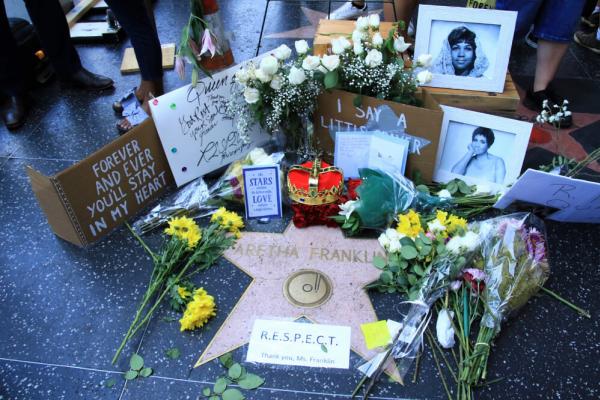The complex nature of the black church was on national display during the funeral of Aretha Franklin. Rev. Jasper Williams’ eulogy felt like a combination of family therapy, an attack against black men for leaving women with the impossible task of raising black boys, and a colloquy on why black lives don’t matter. After a long day of listening to empowering messages, Williams should have displayed his famous whoop style of preaching and taken his seat.
Williams preached a eulogy about Aretha’s soul. Rather than addressing the goodness of her heart, he elevated the tribulations of a person who fails to give their life completely to God. Williams hoisted his version of truth in telling the story of C.L. Franklin, Aretha’s father. Sadly, Williams’ eulogy sounded more like a second attempt to eulogize C.L versus a message regarding the Queen of Soul.
Where is the grace for Aretha and her four boys? Are we to assume a woman can’t be good unless there is a man to take the sin away? Where is the grace for Aretha’s mother, who decided to leave after catching her husband cheat on multiple occasions?
Is this why Aretha sung with such passion when she asked for R-E-S-P-E-C-T?
Did Aretha moan so fiercely because of what she had seen – a cheating father, and churches filled with cheating men? Did Aretha ask for respect based on how men treated women in churches and the music industry? Did she carry the burden of believing her daddy’s Jesus when everything around her gave reason to walk away?
Williams’ eulogy is an example of why womanist theology is needed in uncovering the implications related to gender bias in the black church. This is how women are treated every Sunday. The men sit in the pulpit. The women are asked to show up when it’s time to perform. Women are honored for their talents but silenced when it comes time for critique.
This is the burden of black women who carry the cargo of worshipping Jesus under the leadership of sexist men. This is the heavy load that Aretha carried throughout her life – being ostracized by men for singing the “devil’s music” while clinging desperately to the message of her father’s teaching. Throughout her life, Aretha paid her tithes and offerings to churches that failed to embrace her full humanity. They elevated the perception of her unholy ways while accepting those checks.
Williams proves the distance between the black church and the mounting work of black liberation and womanist theologies. These theologies stress the roles and potential the black church plays in addressing racism, sexism and other forms of oppression. Williams, and many ministers like him, place an emphasis on personal piety rather than the necessity of protest. This is what Raphael Warnock, senior pastor of Ebenezer Baptist Church in Atlanta, evokes in The Divided Mind of the Black Church: Theology, Piety and Public Witness.
This is the disconnect that inspired Dante James and I to produce God of the Oppressed, a documentary film that presents the theology of womanist theologians and Rev. Dr. James Cone, the founder of black liberation theology. Prior to his passing in April of 2018, Cone wrote more than a dozen books, including Black Theology & Black Power, A Black Theology of Liberation and God of the Oppressed. In contrast to the position taken by Williams in his eulogy, Cone developed a theology in which the identity of Christians is to fight for justice on behalf of the poor; God is present in the work to combat racism and other forms of oppression.
Williams, on the other hand, offers a theology that fails to ponder the structures that produce disparity. He is known for his best-selling sermon titled “I fell in love with a prostitute.” It’s a message involving the prophet Hosea, who married an adulterous wife to symbolize the unfaithfulness of Israel to idolatry.
With all the example of unfaithful men in Scripture, it’s meaningful that the story of an unfaithful wife showcases Williams’ theology. His eulogy highlighted why many people are leaving black churches: sexism, misogyny, the shaming of black mothers, and the insistence in refuting black lives matter.
Williams’ eulogy is a valid excuse for women to walk away from the Church.
But, please don’t walk away.
There is more to the black church than this. We are building theology that is rooted in the black experience. We are thinking critically about the roles of black women and moving past the homophobic suppositions of many black churches. We are intentional about how we talk about gender, sexuality and shared leadership. We are not perfect, but we are out here fighting for the integrity of our faith.
Don’t give up on us. There is more to us than what appeared at Aretha’s funeral.
Some of us like to shout on Sunday morning, but after the music stops, we love discussing what it means to participate in making the world a better place for men, women, people with varied sexual identities, and the descendants of the African diaspora. The work of the black church is enriched when conversations shift from discussions about personal responsibility to include the influence of systems that impede freedom.
I walked away from Williams’ version of the black church a long time ago. The good news is there is more to the story that deserves to be told.
Got something to say about what you're reading? We value your feedback!







